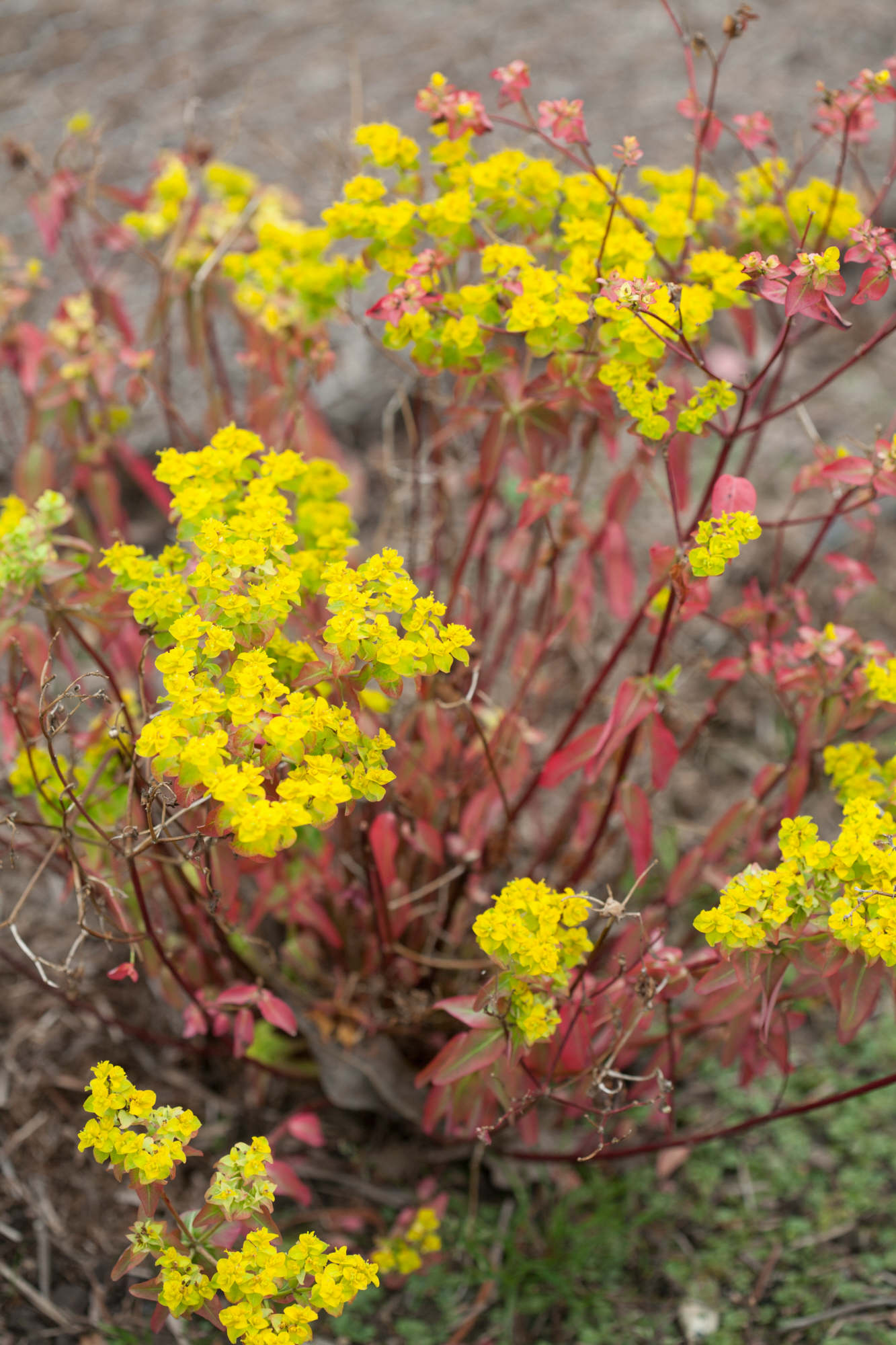Euphorbia oblongata
Balkan spurge
A short-lived, neat, clump-forming herbaceous perennial that's usually grown as an annual. The stem leaves are dark green and no more than 5cm long and 2cm wide. The chartreuse-yellow flowerhead leaves appear in flat heads, 15cm wide, for a long period from spring to autumn
Size
Ultimate height
0.5–1 metresTime to ultimate height
2–5 yearsUltimate spread
0.1–0.5 metresGrowing conditions
Moisture
Moist but well–drainedpH
Acid, Alkaline, NeutralColour & scent
| Stem | Flower | Foliage | Fruit | |
| Spring | Yellow | Green | ||
|---|---|---|---|---|
| Summer | Yellow | Green | ||
| Autumn | Yellow | Red Green | ||
| Winter |
Position
- Partial shade
Aspect
East–facing or North–facing or West–facing
Exposure
Exposed or ShelteredDrought resistance
Yes Hardiness
H5Botanical details
- Family
- Euphorbiaceae
- Native to GB / Ireland
- No
- Foliage
- Deciduous
- Habit
- Bushy
- Potentially harmful
- Humans/Pets: IRRITANT to skin/eye, harmful if eaten. Wear gloves and other protective equipment when handling. For further information and contact numbers regarding pets, see the HTA guide to potentially harmful plants
- Genus
Euphorbia can be annuals, perennials, shrubs or succulents, with milky sap and small flowers held within cupped, often colourful bracts
- Name status
Correct
- Plant range
- Balkan Pen., Aegean Islands, NW Turkey
How to grow
Cultivation
Best grown in moist, humus-rich, but well-drained soil in light dappled shade with sun for part of the day. Great for flower arranging. Self-sows so may have the potential to become a nuisance if not well managed. See Euphorbia for further advice
Propagation
Propagate by seed sown in pots in a cold frame as soon as ripe or sow directly in spring
Suggested planting locations and garden types
- City and courtyard gardens
- Cottage and informal garden
- Wildlife gardens
- Flower borders and beds
Pruning
Cut back flowered shoots to base or collect stems for flower-arranging as needed
Pests
Generally pest-free
Diseases
Generally disease-free
Get involved
The Royal Horticultural Society is the UK’s leading gardening charity. We aim to enrich everyone’s life through plants, and make the UK a greener and more beautiful place.
